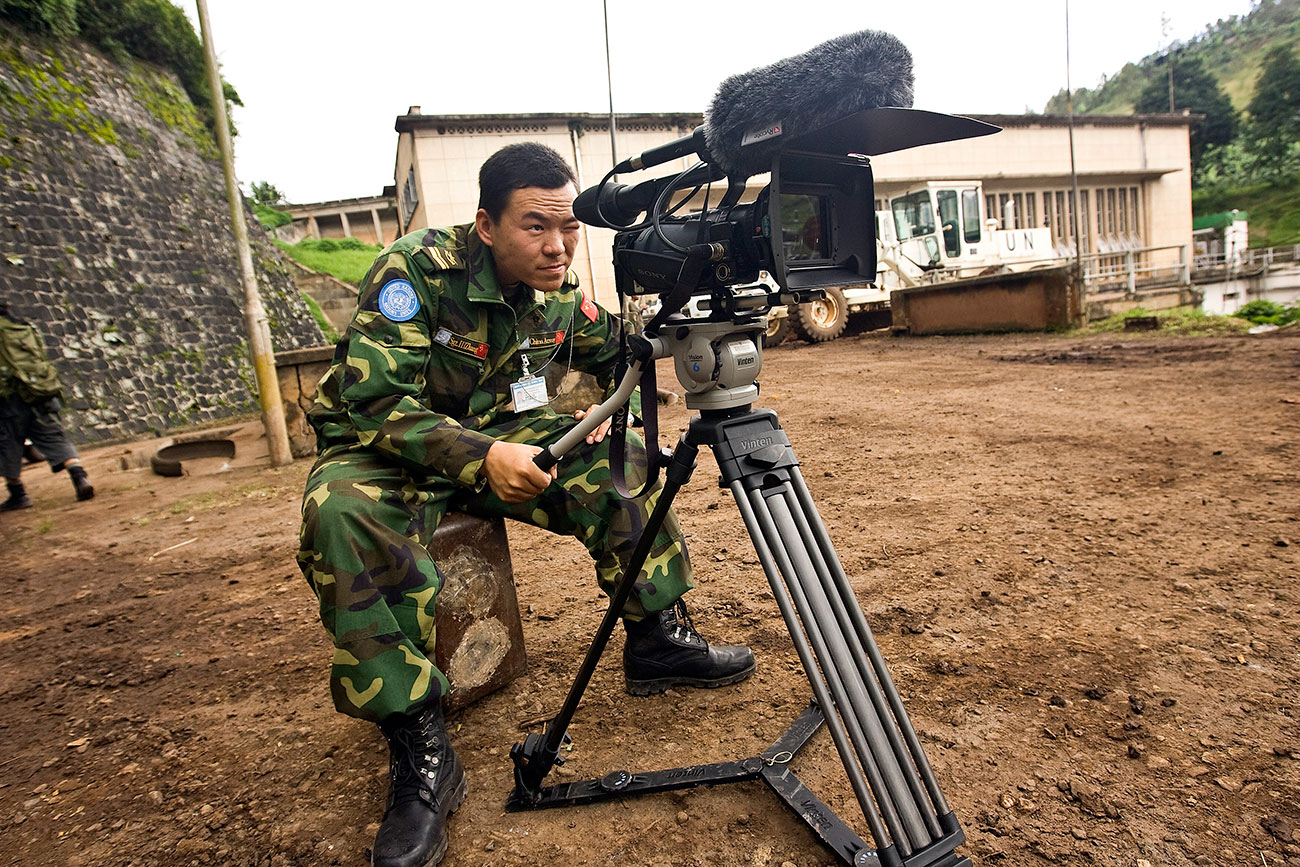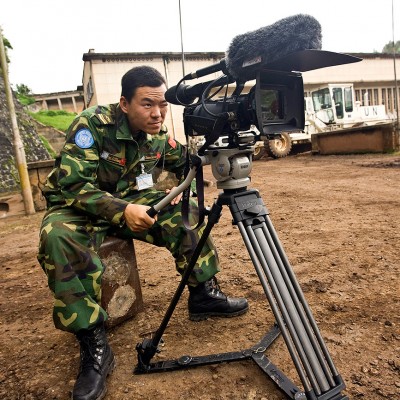In these times of Internet communication and mass media overflow, do we really know anything about the Other? What can we summarise from media reports about Africa, except prejudgments and superficialities? How truly informed are we about conflicts in Central Africa?
In this book, Marie-Soleil Frère synthesises the interaction between the mass media and conflict in Burundi, the Democratic Republic of Congo (DRC), Rwanda, Congo-Brazzaville, the Central African Republic, Chad, Cameroon, Gabon and Equatorial Guinea.
A professor of journalism specialising in Francophone Africa, Frère starts in the 1990s and explains, case by case, the media boom that has taken place since then in these nine central African countries. Her clarification of these events leads to a well-informed discussion about media influence during conflicts, and its social role in post-conflict scenarios and peace processes.
The book’s objective is to improve our understanding of the dynamics of the media in those states, and to identify strategies that can contribute to strengthening or weakening them since, she argues, the aim of documentation and reflection is to prepare us for action (p. 2).
Frère does not just supply theoretical analyses, or isolated and unproven empirical considerations. Instead, she allows the reader to understand what could be claimed to be some basics – that Africa is not a country, but a continent, and that central Africa has no historical or political institutional unity, but distinct histories, populations, political and economic situations. We could even ask: why central Africa? The overwhelming and urgent need to have realistic, mature and pedagogical bibliographical resources on this complex part of the world would be the first answer. The second and third answers are provided by the author: because central Africa “is an area where these media dynamics can best be observed” (p. 1), and “it is also one of the principal focus points, practically a laboratory, for regional and international nongovernmental organizations” (p. 2).
The book’s analysis is based mainly on the years 1993–2004. From state monopoly policies to privately-owned newspapers, radio and television, factors such as the “internal organization of the media companies, the relationship among journalists and political players, and the structure of the media environment, including professional solidarity” (p. 5) are stressed, in an attempt to understand how the media positions itself in times of conflict. Each of the nine national case studies is introduced by a geographical and chronological résumé. The role of new digital media – such as weblogs, micro-blogs, podcasts, videocasts and online social networks, powered from exile and the diaspora, should also be considered in a future edition.
The Media and Conflicts in Central Africa is a reference suitable as a first reading for new students. However, the richness of its synthesis also makes it useful for advanced researchers seeking more information on central Africa, its institutional and regulatory frameworks, the opening-up function of public and private media, the international media’s role in conflicts, and the characteristics of the professional environment. In each of these cases, this means reflecting on balanced coverage in conflict areas, and on standard regulations that should be followed to enhance journalism’s best qualities.
Jean-Paul Marthoz, former international director of information at Human Rights Watch, is responsible for that additional enlightenment, reminding editors-in-chief and reporters that “victimology often reflects a refusal to think seriously about conflicts, a refusal to seek and to analyze their causes and their dynamics” (p. 231).
Looking to the future, this educational effort marks a clear invitation for new media and cultural studies. If we were asked what the most important feature is that is being deeply and permanently altered by the impact of digital media – an action, a process, an achievement – the answer would be knowledge. This unparalleled transmutation is based on a constant redrawing of our personal and social frameworks of perception, so that we are compelled to sharpen our traditional referential values, even – or mostly for that reason – if the paths of development are uncertain. Mass media and established newsrooms have always considered themselves to be the enunciating subject, the absolute narrative referee. Now, the people formally known as the audience are not just demanding a new public sphere, but are building their own identity fora and agoras. There is no doubt that the media have previously assisted people to come together and organise themselves – that is the way most of us fit into the social universe – but never with today’s speed, fragmentation, skill and overwhelming need of metamorphosis.
So, how are new digital media developing and delivering messages about war and conflict? Are their narratives really new and different from previous journalism traditions? What role are grassroots communities and citizen journalists taking in the process? Is the Internet becoming a new media for information exclusion? The answers to these questions belong to the years to come, but a determination to search for the answers has already been demonstrated. As an introduction to this research, Frère’s book is invaluable for giving us structural clues to understanding conflicts in central Africa.


